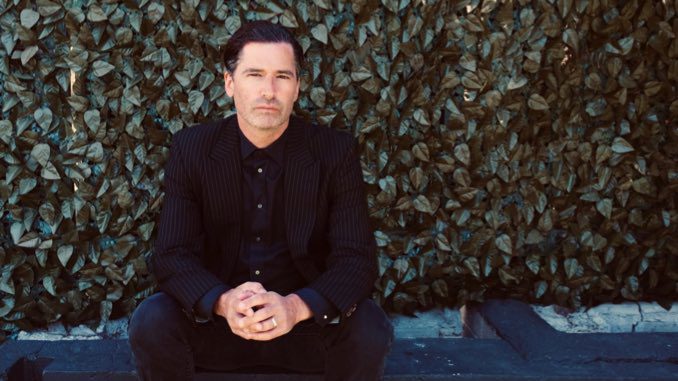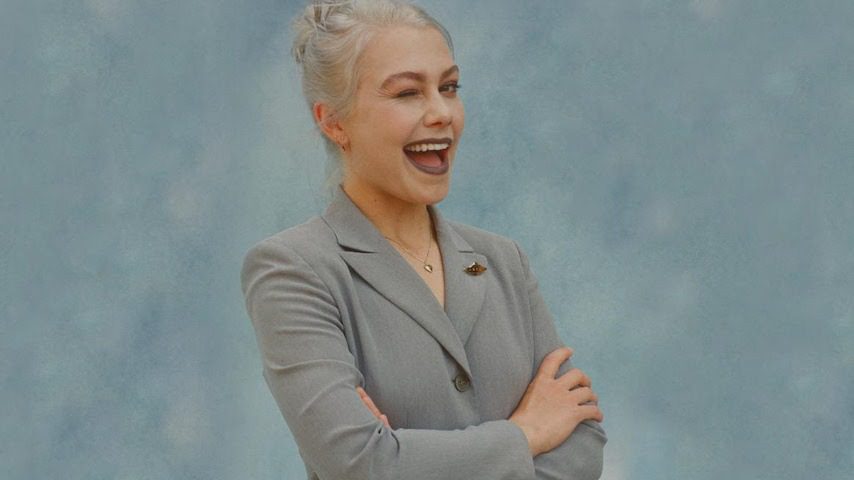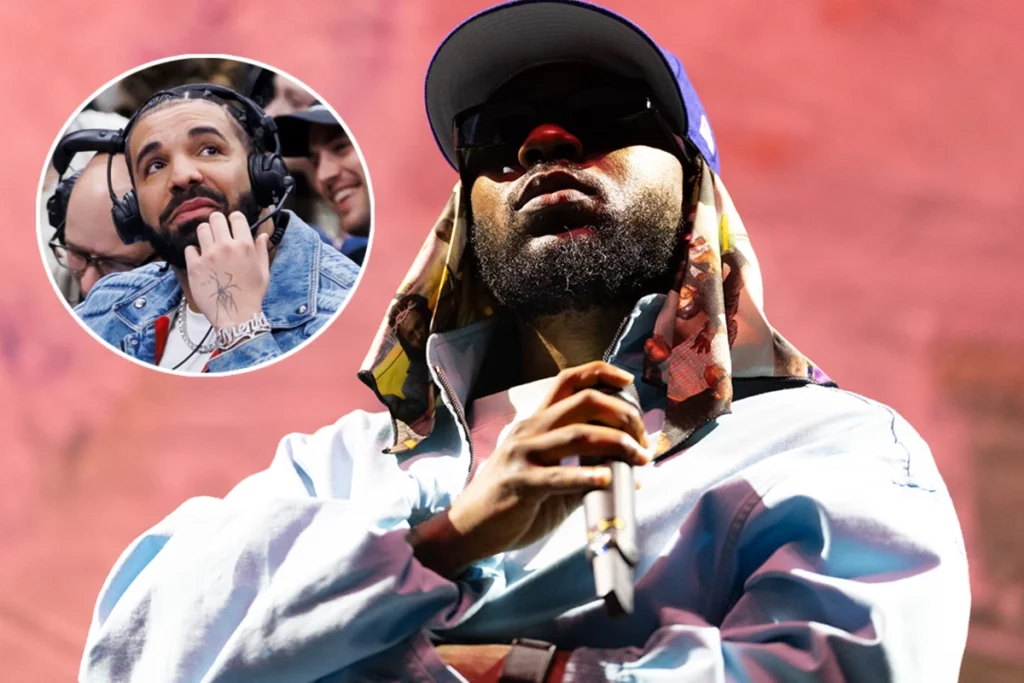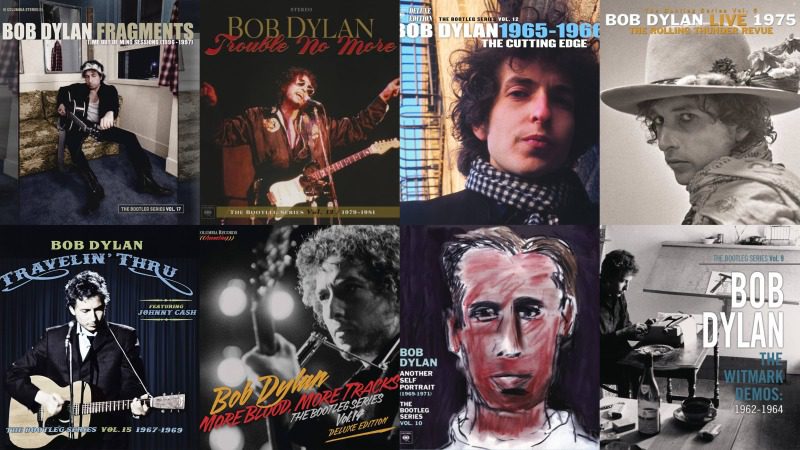Pete Yorn had plenty on his pandemic platter, project-wise—he wasn’t initially looking to pile on more. The New Jersey-bred, Los Angeles-based tunesmith could have easily rested on the laurel of his self-released 2019 achievement, Caretakers,” confidently co-produced with his keen-eared studio accomplice, Jackson Phillips (aka Day Wave). Instead, he got busy in early 2021 with a Bandcamp-proffered covers album dubbed Pete Yorn Sings the Classics, collaborating with another production chum, Marc “Doc” Dauer on unique versions of some of his all-time favorites, including unexpected choices like Henry Mancini’s “Moon River,” Roxy Music’s “More Than This,” The Beach Boys’ “Surfer Girl” and even the Diana Ross standard “Theme From Mahogany (Do You Know Where You’re Going.” He also tested out his warm, woodsy goth-folk warble on suitably edgier material, such as “Here Comes Your Man” from Pixies and “Ten Storey Love Song” by Britain’s Madchester-defining Stone Roses. Additionally, he felt compelled to celebrate the 20th anniversary of his dazzling 2001 debut musicforthemorningafer—which had broken his bass-thwapping, punk-spirited, occasionally vocoder-distorted sound via the irresistible hits “Life on a Chain,” “Strange Condition” and “For Nancy (‘Cos it Already Is)”—with a new The Rooftop EP, featuring “Rooftop,” a previously unreleased chestnut from those landmark, garage-scrappy sessions two decades earlier, plus three other cuts.
Yorn, who turns 48 next month, was also quite content just spending slow-motion lockdown time at home with his wife, photographer Beth Kaltmann, and their inquisitive daughter Elle, now six. He never imagined that there was an entire new record, his ninth, which is now optimistically titled Hawaii, ricocheting around inside him, just begging to be released—which it is, completed, today, June 17. And it would turn out to be one of his most memorable collections, fluidly tapping into that touchstone MFTMA energy (on “Blood,” “Never Go” and the jangly lead single “Elizabeth Taylor”) while simultaneously skewing almost Vince Guaraldi Trio-forlorn in some places (“Further,” “Ransom,” “Stay Away” and a oblique-chorded “Miss Alien”). It’s a deft, dazzling display, revealing a songwriter firing on all inventive six, 20 years into his risk-taking career. To hear him tell it, he didn’t really have much of a choice in the matter—he was simply compelled to make Hawaii, once he discovered that his old cohort Phillips had retreated to the secluded California desert like he and his family had.
Initially, the two musicians kept missing each other. Then: Pandemic poetry. “Because we were in such a flow with Caretakers back in January of 2021 that we had already made a couple of new songs that we put out, ‘The World’ and ‘Jeanine,’” Yorn recollects. “But when we finally got back together after not seeing each other for so long, and not being able to work on music? It was in late April, early May of 2021, going into the studio, we were so excited just to see each other, we were both like, ‘Oh my God! Is this crazy? Are we actually back?’ And we just clicked right in to doing what we do.” The first song from the first session was “Ransom,” a pensive keyboard processional Yorn wrote on a rickety old piano that had once graced his childhood home back in New Jersey. And the hits, as they say, just kept right on coming. “So a lot of the energy of this record is two guys just being so excited to be back working together, after some kind of forced separation which we’d never dealt with before.” He chuckles at the dark irony. “I mean, no one had, really, right? So I learned that I no longer had to be so precious about things.” The life lessons, like the inspired new material, just kept on arriving, too. And he was happy to run them all down for Paste …
Paste: There seems to be a forlorn feeling of regret coloring Hawaii. Or am I wrong?
Pete Yorn: There’s a lot of reflection that I typically do. But I feel like everyone’s anxious to move on from the pandemic and all that, but it’s impossible to trace the lineage of this record without just going back there. And the birth of it was definitely during major early quarantine, lockdown, kind of unknown days, where—looking back at it—it’s like, “Whoa!” It was unprecedented for any of us, you know? And so there was a feeling of isolation, for sure. We packed up and just split into the desert, me, my wife and my daughter. And my wife saw it coming early, in December of 2019. She’s always liked sci-fi movies and post-apocalyptic movies—she’s like a junkie for that stuff. And she kept saying in early December, “Dude—there’s this thing going on in Wuhan. Check it out—I’m telling you, this is real.” And she’s not an alarmist at all. But she said, “They’ve locked down this city—I’m telling you, something’s going on!” So by Feb. 15, we left for the desert. Because where we were living, which I had never minded before, our apartment was on the same block as the emergency room at St. John’s hospital in Santa Monica, and there would be ambulances rushing by. And I never minded it before, and then all of a sudden with the possibility of this contagion, it just became really claustrophobic and felt weird. And you didn’t know if you could just get it walking outside. So I said, “We’re getting the hell out of here!” And we bailed and went to the desert. And it ended up being the hottest summer on record in Palm Desert, California. If you look it up, literally! 2020—the hottest one on record, and the one that we stayed out there for.
And I remember feeling something very clearly one day. There were times that I would feel just happy to be away and be with my family, and the simplicity of it, and my little girl was still four or five or six at that point—it was just this super-family time, and no excuse to really have to go do anything, other than kind of just keep it simple. And there would be weeks that went by where I felt pretty content, but then I’d have a few days where I’d start to feel really restless and claustrophobic. And it was one of those days where I was just sitting out back, by myself, and my little girl comes out and goes, “Daddy—this could be Hawaii!” Because she loves Hawaii, and we’d taken her there a few times, and it had become her favorite place. And it was such a simple thing for a kid to say, but it just made me think of … the state of mind. For some reason, it just resonated so hard, and I was like, “I’m gonna name my album ‘Hawaii.’ Whenever I make an album, I’m naming it ‘Hawaii.’” Because it evoked so much to me, as this magical place to escape to. Especially during the pandemic, if you felt like you just wanted out, somewhere you could fantasize about, like, “Where could we go where we could live normal again, and just not have to feel this loss of our way of living?” And I felt like Hawaii evoked this chance for escape, this chance for freedom.
So the record itself has nothing to do with literal Hawaii. And in fact, I will tell you that the album cover is a pool—it’s not even in Hawaii. It’s in the San Fernando Valley, and there are glitches in the top of it, because those are the glitches in The Matrix. And a lot of the songs are different things, thematically, but you’re dealing with isolation, you’re dealing with loss, unrequited love. But in a lot of it, you’re dealing with archetypes, as well, like Hawaii as this archetype in our mind of this perfect place. But ultimately, wherever you go, you’re stuck with yourself, you know? And you bring your own baggage. I’ve been to Hawaii before, where I’m looking forward to a vacation, and I’ve had great times there, and I’ve had shitty times, where I’m stuck in my own head and not able to enjoy it. So it’s this idea that, wherever you are, if you could find this peace that lives within, then you can actually have a good, purposeful existence, and you don’t have to go to Hawaii, if you know what I mean.
Paste: Later did you actually, finally say, “Well, let’s physically go to Hawaii? Why not?”
Yorn: We did. We went for the month of February 2021. We were able to go for a month. And I didn’t want to go anywhere, but my brother [Rick Yorn, noted Hollywood film producer] talked me into it—he was like, “C’mon! It’ll be great! We’ll live in a house together and it’ll be fun!” And I was even nervous about that. But in hindsight, it was the best thing, because when you’re in with your five-year-old for months and months—it was just me and her and her mom, and I’m cleaning toilets, mopping floors, and coronavirus reports kept coming in until you don’t know if it’s gonna kill you or not at that point, you know, those early days where everyone was just freaking out about things. Everyone has their own tolerance level, but those early days were a little spooky. And I was doing livestreams from the desert—they’re all on my Instagram, there’s like 10 of ’em. But I went to Hawaii, and I was so happy I went—it was amazing. It was all pre-vax, but when I got back the vaccines became available, and I got mine at the end of March.
Paste: The delicate Hawaii album closer, “Stay Away,” feels like one of the most brutally honest songs ever. And I’m not even sure what it’s about.
Yorn: Yeah. I remember so clearly writing that. That was prime quarantine lockdown. I remember just picking up my guitar, and the thing came out in pretty much one take. I recorded it into my iPhone, and I still have the original recording, and it’s basically just that. A slightly different feel, but it’s exactly that. With a lot of these songs, I remember that I wanted to get the part of myself out that my thinking mind could kind of get in the way of, you know? I was like, “I’m just gonna let shit fly out, while just not thinking about it at all, not even editing myself, initially. And if I openly have to then, I will.” And this one made sense to me right away, but other times stuff flies out and I’m not sure what the song means in the moment. But then I’ll sit with it, and a few weeks later, all of a sudden, it’s like, “Cool! Oh my gosh—it all makes sense to me now!” So letting that unconscious part of you just spew stuff out? People talk about channeling, or just letting stuff flow through you, without letting your thinking get in the way of it. I think that there’s so much wisdom that comes through that universal stream, which I wanted to pull through on many of these songs. And whether they did or not, time will tell. But the songs have developed in their meaning for me, especially over the last month that they’ve been finished. So that approach was a big part of this record.
Paste: Now that you really tapped into something primal, do you understand, as a composer, how to set up those same circumstances again?
Yorn: A lot of people call it the part of yourself that you would maybe hide from the world. You wouldn’t want the world to see it, and you’d call it your shadow self, you know/ There are a lot of different terms that people could misconstrue in different ways. I view the shadow self as the part of you that you’ve buried away and you don’t want the world to see, but the reality is that that is your strongest self. Because the part of you that’s scared of something? That’s the part of you that’s gonna get it done. There are some people that swear by grit, and say, “Fuck it! We’re doing it! We’re just gonna ignore that and power through!” And that’s cool, and that could work. But a more powerful thing in us is the parts of us that are frightened, and the parts of us that are scared to do something. And as you kind of go, “Alright—you handle it,” and give the wheel over to them, and watch what happens? It’s counter-intuitive, but that part of you will get the job done. I believe that. Because being scared or having fear lets you know that you can handle it, and you will get the job done. But the more you fight against that, the more you suffer. All these characters in the songs, to me, they’re all dealing with some sort of struggle, whether it’s isolation, whether it’s coming to terms with their past, feeling wronged by something, or just figuring out how to move around in this world that we live in today, which is very confusing—are they mad at the world, or just mad at themselves? There’s a lot of different stuff in there, along with letting go of how powerful nostalgia is. And I do know that goes into a lot of my songs, and how it can also become a fucking trap, where you just get stuck, too mired in nostalgia. So you need to drop off a little bit of that to be free to move on. Because it’s okay to celebrate things that you love and where you come from, but it can also be a double-edged sword where you get scared of change, you know? And change is inevitable, as we all know.
Paste: But when you listen to, say, your new song “Never Go,” it maintains your classic bass-heavy morningafter sound. And nostalgia be damned, you created that sound, and you freely tap into it throughout the album.It’s yours—you can not only tap into it, but reclaim it at will.
Yorn: I think you’re definitely tapping into what I was talking about. I feel like after you’ve done this for so long, you’re like, “Oh, I can’t do that again.” But somehow, with me not even thinking about that, letting it all go and saying, “Whatever comes up in the moment? I’m gonna follow that.” I think that was important, and it ended up being different anyway, so there are nods or things that I do. And I think working with Jackson, I realized this when we made Caretakers—he kind of reminded me about things that I’d left behind maybe years ago, because I felt like I’d explored it or made records of a certain sound. And he was like, “No, dude! That’s the shit—that sound right there! That’s deep!” So I think I felt more open to just letting stuff fly naturally. So it just comes down to trust, and just getting out of your own way.
Paste>: Is “Fred and Wilma” referencing your own folks? It talks about a “50-year marriage.”
Yorn: One of my favorite lines on the record is in that song—I’m talking about a 50-year marriage that they referred to as a one-night stand that got out of hand. And for me, Fred and Wilma are another archetype—America’s cartoon family, husband wife from a different generation, of course. And yeah, my parents have been together for a really long time, which is another archetypal thing. But certainly, my parents are still together, and it’s hard to watch them get older and all the challenges that come with that. And they love each other and they made a great family, but I feel that there are a lot of couples that stay together just because they don’t know what else to do. And sometimes that’s great—sometimes it’s true love. And me and my own personal situation, I wanna be very clear—my wife and I are best friends, and I feel so lucky. But it took me a while to get to a place where I was able to commit to a real relationship. I think I was scared of that—scared of a mortgage, scared of a marriage, because I take it seriously. I’m not one of those people that casually says, “Hey—let’s get married!” I take it very seriously.
Paste: The single “Elizabeth Taylor” isn’t really about the actress, of course. It feels more like a hazy youthful reminiscence of first visits to a seedy big city. And you mention two L.A. streets—Motor and National?
Yorn: Oh, yeah—there is an intersection. And I wrote a lot of the lyrics, standing on the corner of Motor and National. There are a lot of Easter eggs embedded in the song. But being down there, I think I was waiting for my wife—she was going into a store called Craig’s Plastics. She was going to find a guy who could manufacture these lucite chips for these backgammon and chess beach towels she had the idea that she wanted to make. And she did make them, and they actually did really well for her. So I just drive her around, wherever she wants to go, and I love doing it, but while she was in there talking to them, I just started looking around and I got this idea in my head, because there are a lot of signs down there. If you’re ever down there, you’ll see. It’s like in the movie The Usual Suspects, at the very end of it where you see a lot of [Verbal Kint’s] stuff in his story is coming from—there’s a lot of that going on in the song. But then it really does tie together with some of my early days, when I first moved to L.A. in the mid-’90s, going out and kind of experiencing L.A. for the first time, and seeing some of the stuff I saw. But also in that song, it’s kind of like that feeling, when you move out to L.A. from New Jersey, and you come out definitely to try and make it in music, and people tell you, “Oh, you’ve gotta do this. You’ve gotta do that.” And I remember just being like, “Fuck you! I’m gonna fucking figure it out in my own way.” And so, the chorus of “I’ll find my own way.” People told me the most ridiculous things, and I’d just be like, “What are you talking about?” But luckily, I had a strong enough sense of self to see through it, but there’s an element of that in the chorus, for sure.
Paste: Your video for “Elizabeth Taylor,” which follows you on your mundane daily home-workout routine, makes a great pandemic point—along with taking extra dose of vitamin D, since we weren’t getting as much sunlight in lockdown, we all had to set up some kind of exercise routine, as well.
Yorn: Yeah. In the early days of quarantine, I would just walk around my hallways, repeating, “Chop wood. Carry water. Chop wood. Carry water.” Which is an old zen thing, as in, “Just do the job. Don’t get too caught up in your head about everything right now, and just get it done.” Whether it was cleaning toilets—which was no big deal—mopping floors, or playing with your little daughter. Whatever it is. So by the time I made the video, it was well after that, but I wanted it to feel very repetitive, to kind of [capture] the mundane, repetitive things that just go into your daily workout, and that you’ve just got to do it. And that helped keep me sane for sure, even though it was a thing where you’re like, “Ugh. I’ve gotta do it again?” But you never regret getting your workout in.
Paste: There’s a hint of that old Thomas Mann quote wafting through Hawaii, too—“You can never go home again.”
Yorn: Well, it’s like, you’ve just got to keep going out into that desert, right? We’re born, and we’re on this journey, and we’re all ending up in the same place. So you’ve got to just keep going into that desert. And yes, you can go home again, and try and experience things that you like again in some ways, but it’s always going to be different. There’s also that saying of, “You can’t walk through the same river twice.” The river’s gonna be different, the way the water hits your feet is gonna be different—there’s all that sort of stuff. And you’ve got to be cool with that. And also, that is kind of cool, and interesting in itself and very exciting. So if you can embrace that excitement, you can have a good time with that, instead of fighting against it all the time. But I will say that the other thing about Hawaii itself that I think is interesting is, it’s the place that we spoke about, but it’s also the most isolated island chain in the world. So there’s this idea of escape there, but there’s this dark loneliness potential, too, and a lot of other things going on there. So it is what it is.
Paste: So Buckaroo Banzai had it right then? With his “Wherever you go, there you are.”
Yorn: That’s right. That’s exactly right. You just nailed it, my man!
Hawaii
is out now on Shelly Music.
Revisit Yorn’s 2019 Paste Studio session below.




